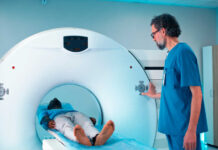
Acid reflux typically occurs after you’ve eaten when your stomach acid goes up into your esophagus. This typically happens because your esophagus is the link between your stomach and your throat. Acid reflux can cause heartburn, a stinging sensation in your chest, and make your mouth taste sour.
Acid reflux and heartburn are common conditions, with roughly twenty percent of the US suffering from a more severe form known as gastroesophageal reflux disease (GERD). Fortunately, you can avoid the symptoms and the condition’s progression if you know the causes and how to avoid them. The following are tips you need to prevent acid reflux and heartburn.
How to Prevent Acid Reflux
Lifestyle Changes
Most cases of acid reflux, even if only minor, can be avoided by adjusting your habits and lifestyle. Some of these include:
- Not lying down for at least three hours after eating.
- Wearing loose-fitting clothing to prevent abdominal pressure.
- Eating more regularly but lighter.
Acid reflux and heartburn can be caused by more than one kind of food. So, observe how your body reacts to the items you eat. Some of your triggers could be coffee, fatty foods, or alcohol.
Medications
In some cases, changing your lifestyle may not eliminate acid reflux and its symptoms. As a result, your doctor may prescribe over-the-counter medications for fast relief. These medications include H2 receptor blockers, antacids, mucosal protectants, and proton pump inhibitors.
Chewing Gum
Earlier studies on the subject matter have suggested that chewing gum can help to reduce esophageal acidity.
Bicarbonate gums show promise for preventing acid reflux because of their ability to neutralize stomach acid. In addition, gum chewing has been shown to boost saliva production, which may counteract some of the stomach acids in the esophagus.
Eating Dinner Early
Many doctors recommend that people who suffer from acid reflux should refrain from eating within three hours of bedtime. That’s because you can worsen gastroesophageal reflux disease (GERD) symptoms by lying flat on your back or horizontally after a meal.
In addition, one study found that eating later in the evening led to 5% more acid exposure when sleeping than eating earlier at night.
Maintain a Moderate Weight
The diaphragm is a muscle located just above the stomach. When you swallow, the diaphragm contracts the lower esophageal sphincter, closing off the passage for stomach acid. The lower esophageal sphincter typically sits beneath the diaphragm, but excess abdominal fat can induce abdominal pressure to move it higher, away from the diaphragm.
This condition is commonly known as a hiatal hernia, a significant cause of GERD. In addition, acid reflux and GERD have also been linked to excessive belly fat.


















